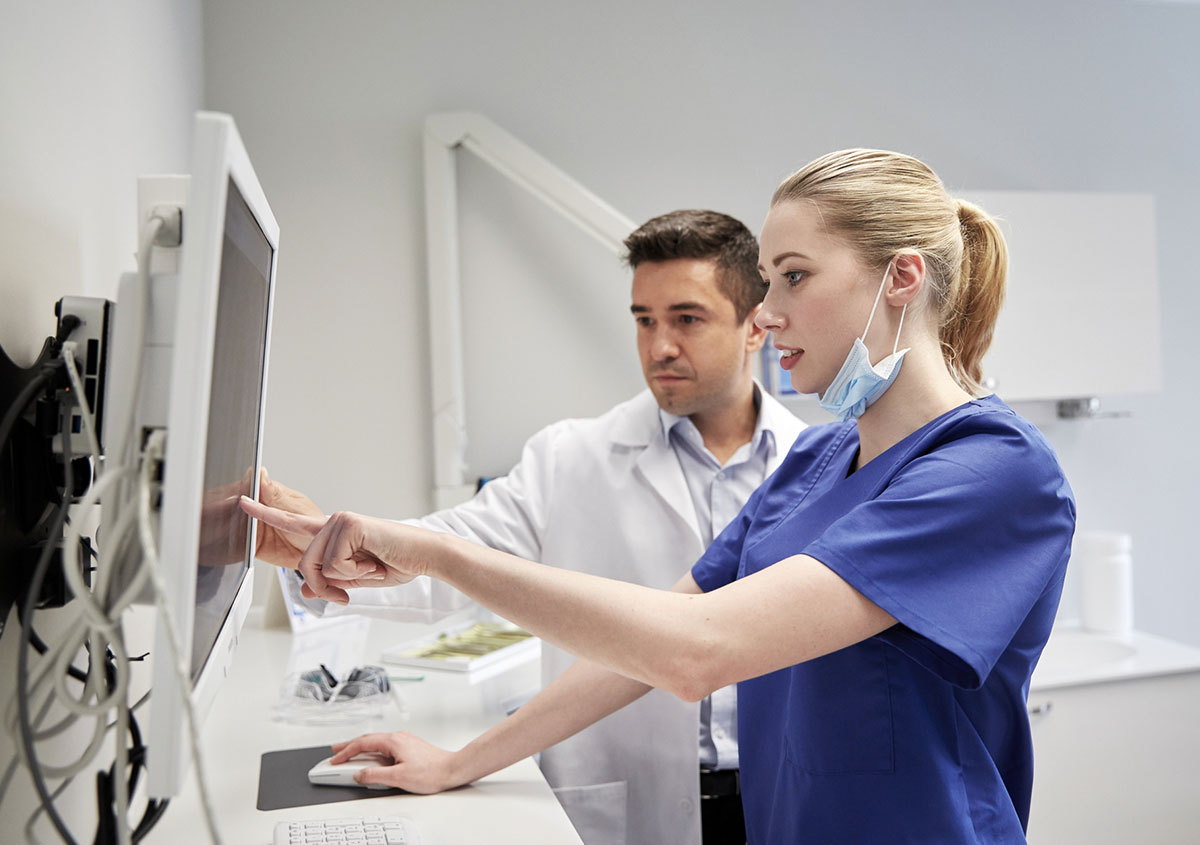Why You Need a Dental Clearance Before a Knee or Hip Surgery
As Americans age and live longer and fuller lives than any generation before, joint replacement surgeries are becoming commonplace. Today, knee and hip replacements are the most common elective operations. Yet, one of the most common, and most serious, complications to these nearly routine surgeries continues to be bacterial infection.

Symptoms of this complication include pain, redness, swelling, drainage, stiffness of the joint, night sweats and fatigue. Infections affecting artificial joints can ultimately result in failure of the replacement, decreased range of motion, the need for further surgeries, and even amputation of the limb, explains the American Academy of Orthopedic Surgeons.
No surgical procedure comes without risk. But the risk of infection can be minimized. That’s why patients, their physicians, surgeons, and dentists are working to prevent this complication. Let’s discuss the importance of preventing infection for elective surgeries like joint replacements, why you should get a dental clearance before an operation or revision, and the dangers of periodontitis.
How to Decrease the Risk of Joint Replacement Infections
About 1 million total joint replacement surgeries – mostly hips and knees – are performed each year across the country. In most cases, the new prosthetic hip or knee offers significant pain relief and, with regular physical therapy, patients can get back to their daily life quickly. In about 1% of cases, however, patients develop a deep infection.
Bacteria can enter the joint during the procedure, even in a sterile operating room, or after it, as the incision heals. A third option is that bacteria already present in the patient’s body travel through the blood to the site of the prosthesis. This is the type of infection that doctors and dentists are working together to prevent.
Request Dental Clearance Before Surgery
More and more surgeons are requiring that their patients get clearance from their dentist before hip and knee replacements to help decrease the risk of pre-existing infection traveling to the surgical site. If present, bacteria from a dental disease – most often gum disease or periodontitis – can transfer from the mouth to the vulnerable tissues affected by the surgery.
Nearly 50% of adults in the United States today have some degree of periodontal disease, according to the CDC. And this amount is even higher among adults over the age of 65, the same age group which commonly undergoes joint replacement intervention. Yet, the majority of people don’t realize that they have the condition. Many patients have no pain or noticeable symptoms until the disease is in the advanced stages of development. A comprehensive dental screening is the only way to be sure your mouth is free of this bacteria.
The ADA recommends that patients get a dental examination and clearance from their dentist prior to elective surgeries. If gingivitis and periodontal bacteria is detected, treatment often includes oral antibiotics and a simple, non-invasive procedure to remove tartar and bacteria from the teeth. Proper treatment may require briefly postponing the joint surgery, but it will help ensure a positive outcome, faster recovery, and better health in general.
Request Dental Clearance Before Joint Revisions
Hip and knee replacement often require revision procedures. This is still considered surgery, and therefore, patients should still get dental clearance before the procedure to eliminate this unnecessary risk of infection.
Take Antibiotics as Recommended
Before Surgery
Antibiotics may be prescribed to you before joint replacement surgery in order to clear periodontal bacteria from your system or following the surgery as you heal.
In the Future
It may be surprising, but you may be prescribed antibiotics for future dental procedures. The ADA recommends antibiotic prophylaxis for people with artificial joints. This means they should take antibiotics prior to certain dental procedures to help prevent bacterial infection in the part of the body that is still vulnerable. Though researchers are still working to understand if these types of patients are greatly at risk of infection following joint replacement, it’s always best to follow your doctor’s advice.
The Real Dangers Posed by Periodontal Disease
Periodontal disease doesn’t just affect the gums and teeth. Bacteria travels through the bloodstream and can reach every tissue in the body. The bacteria found in the mouth can lead to other serious health problems if left unchecked. In fact, this disease has been linked to a wide range of other diseases, including:
- Heart attack,
- High blood pressure,
- Stroke,
- Diabetes,
- Breast cancer,
- Other types of cancer,
- Lung and kidney disease.
Plus, the presence of an infection anywhere in the body weakens the whole immune system. This can make you feel tired and fatigued while making you more prone to contracting other illnesses.
Good Dental Health Is Key to Overall Health
Prevention is always the best medicine. It’s much easier to treat an issue in its earliest stages than to treat it once it has become a severe problem. Preventing tooth loss, dangerous complications, and related diseases is possible with good oral health habits. That’s why we always recommend regular brushing, flossing, and dental cleanings.
Learn more about the Correlation Between Good Dental Health and Living Longer.
Briglia Dental Cares about Your Health
Your health, recovery, and peace of mind are important to us. Before going in for joint replacement surgery, a dental health clearance can really make a difference in the outcome of the procedure. It will protect your new joint and the incision area, along with lowering your risk of other problems throughout the body. We can help you get treated properly and decrease the risk of complications.
To schedule an appointment with Briglia Dental Group, call us at (610) 615 0160.
Editor’s Note: This post was originally published in November 2017 and has been updated for accuracy and comprehensiveness.
Share this Article
Back to Blog Page





